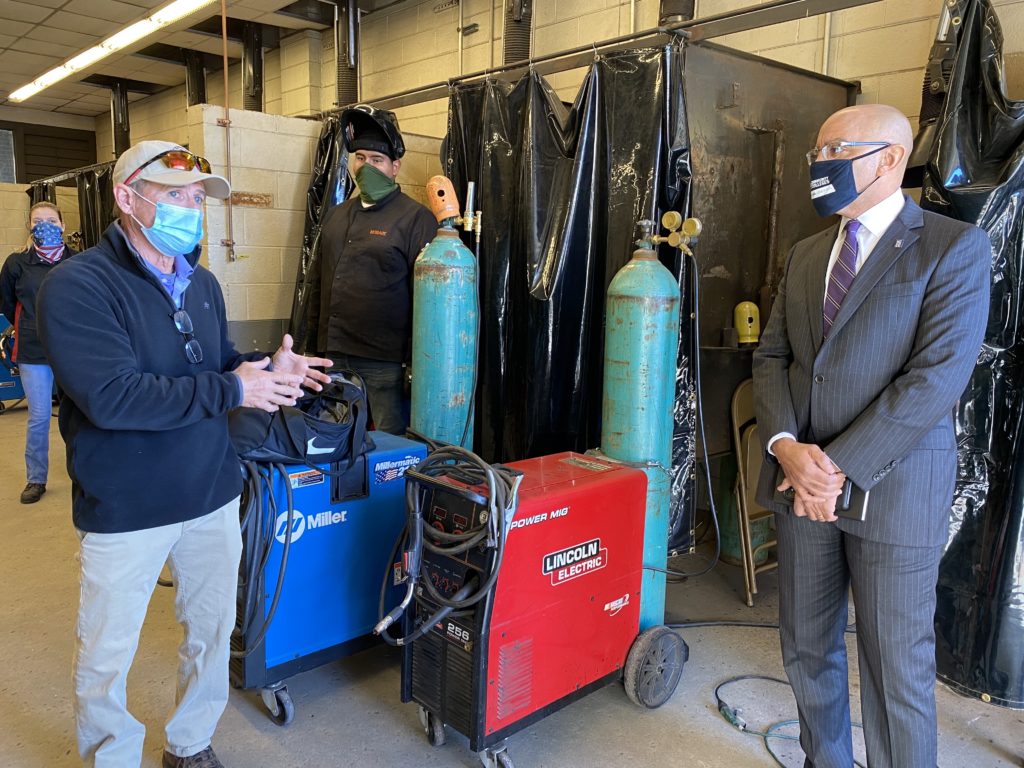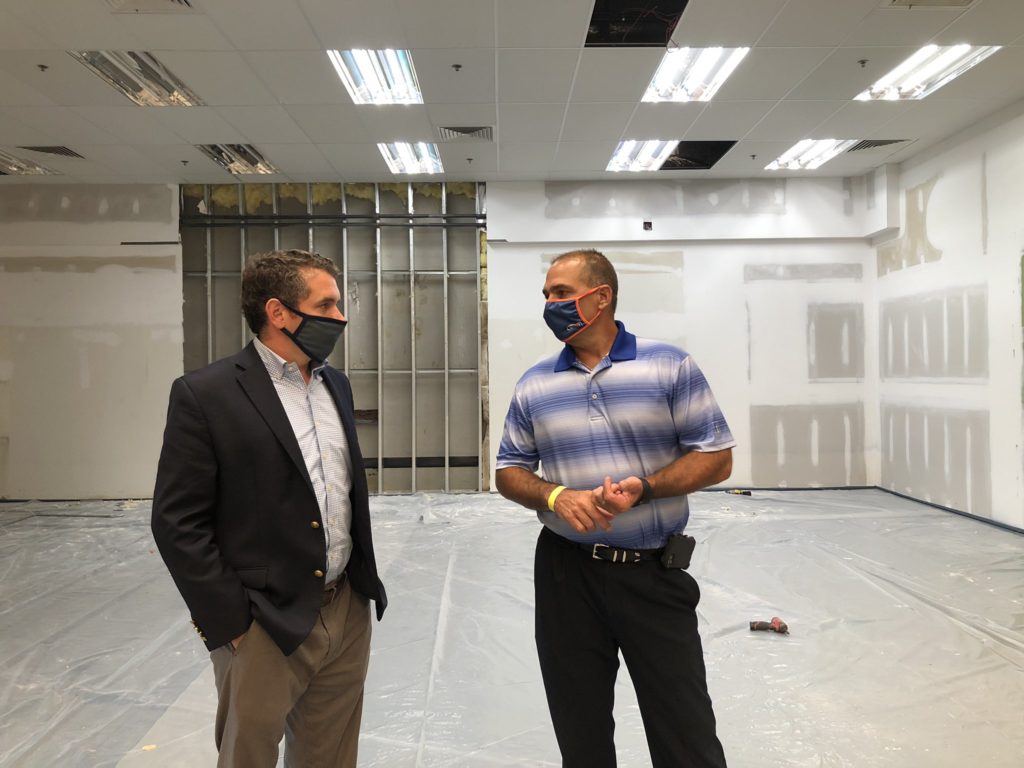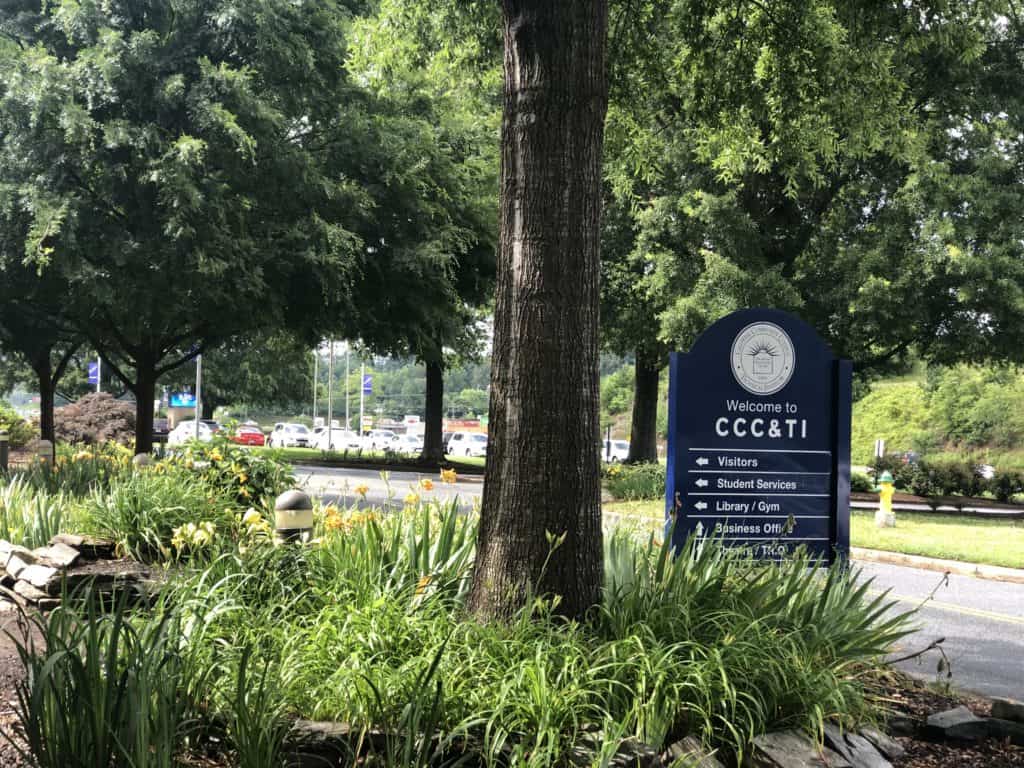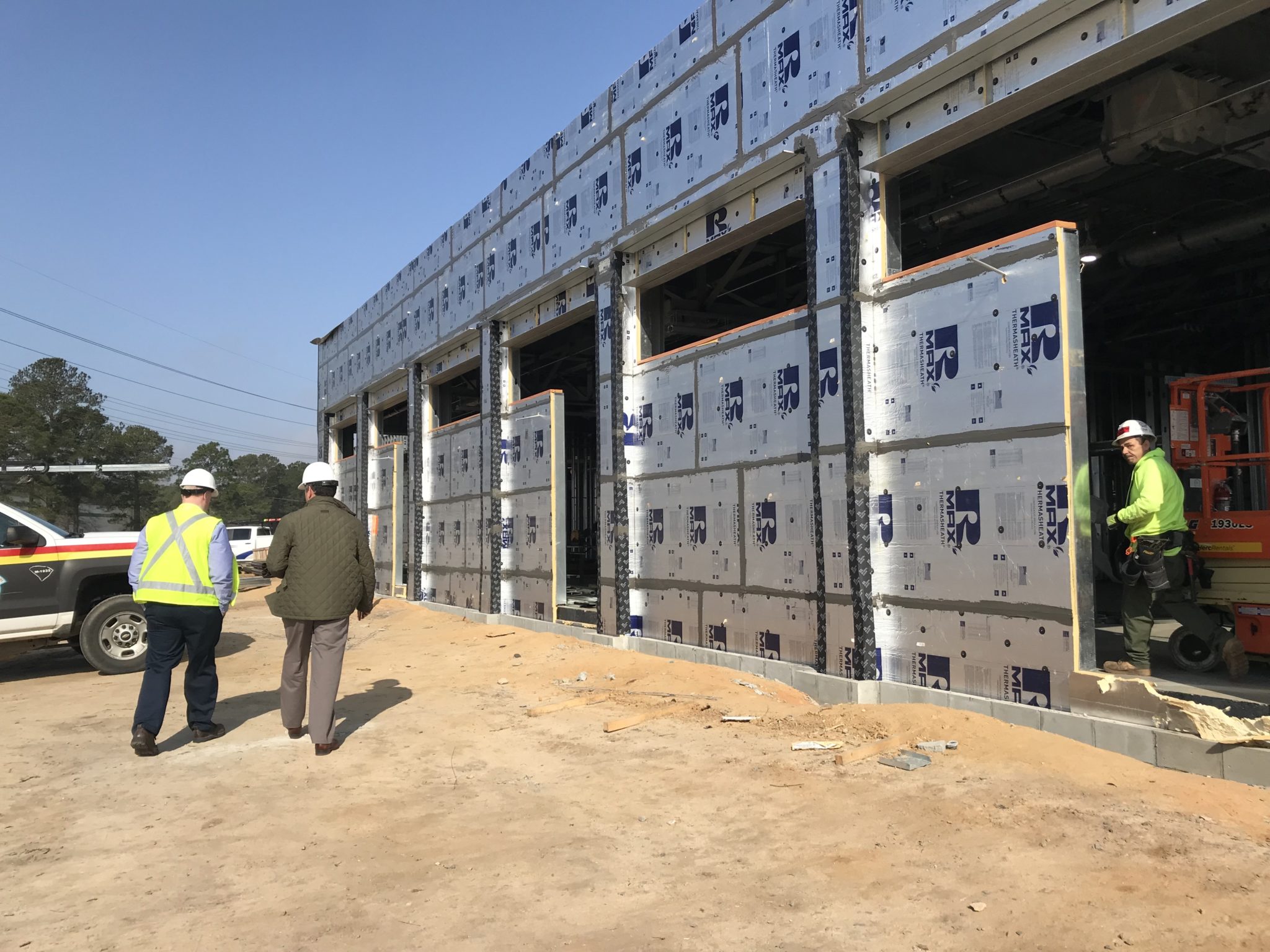North Carolina community colleges face supply chain issues
Share this story
-
Supply chain issues have delayed the full launch of some community college programs because they lack the equipment to replicate industry training. @NCCommColleges
-
“Schools are seeing increased costs in general, then with supply chain delays they are seeing even more cost increases outside of construction,” said @NCCCSPresident. @NCCommColleges
Recent supply chain issues and staffing shortages have taken their toll on manufacturers, businesses and consumers.
Community colleges are not immune.
In the North Carolina Community College System, many ongoing and new capital projects have been delayed due to out-of-stock equipment and staffing shortages, President Thomas Stith said. Costs also increased due to increased demand and longer construction periods for projects.
“We certainly see it in different aspects,” Stith said. “Whether it’s the supply chain here with technology pieces or the whole system, we’re definitely hearing about construction delays.”
In response, the system is working to further streamline its capital project approval process. Stith said that’s especially important in light of “significant funding in the budget for capital or repairs and innovations.”
Note: JavaScript is required for this content.
North Carolina finally got a new state budget in November 2021 – and the NC Community College System receives more than $1.3 billion each year of the biennium.
In January, the State Board of Community Colleges approved how to spend part of that $1 billion investment. This plan allocated $400 million for capital improvement projects and repairs at the state’s 58 community colleges and nearly $50 million for the purchase of equipment and furniture.
“It’s been kind of a challenge to work through some of the legislation, but (we) are looking at ways to streamline so that we move forward as quickly as possible,” Stith said. “Schools are seeing cost increases in general, and then with the delays in the supply chain, they’re seeing even more cost increases outside of construction.”

“An impact on education”
Alamance Community College officials asked county commissioners in February to release more money to cover soaring construction costs, the Alamance News reported. The college’s request was for two flagship projects: a student service center and a center of excellence in biotechnology. County voters agreed to fund the projects in 2018 through a $39.6 million revenue bond sale.
In addition to inflation, rapidly rising construction and labor costs have increased the estimated cost of the training center by $2.5 million, said the president of Alamance Community College, Algie Gatewood. Without those funds, he said the college would have to significantly backtrack on its plans for the facility, including the firing range.
At Caldwell Community College and Technical Institute (CCC&TI), President Mark Poarch has similar concerns about two major upcoming construction projects.
As was the case at Alamance Community College, these project estimates were based on pre-covid construction costs.
“I’m concerned that those costs are significantly higher than what we currently have the money to build,” Poarch said. “So we’ll be working on that and trying to figure out what the new cost looks like and getting a game plan and a strategy to try to get any additional funds that might be needed for the projects, but that’s definitely a big concern. .”
Various renovation projects on campus are also costing more than they otherwise would have, Poarch said. Supply chain issues have also delayed the full launch of some programs.

Randy Ledford, vice president of education at CCC&TI, said the college was struggling to find cooking and computer equipment. Last August, the college received an eight-month wait notice when purchasing machinery for a new heavy equipment technology program.
“We have some issues, not just with the supply chain that impacts the industry itself, but impacts education,” Ledford said. “Many community college programs attempt to replicate programs that prepare students for the workforce in business and industry. They require equipment used by a business or industry. If they can’t get their hands on that gear, they’ll have a hard time replicating that skill.
Such is the case with a new biopharmaceutical technology program the college is trying to launch — a two-year associate’s degree in applied science in biopharmaceutical technology, in addition to the short-term training already offered in biopharmaceuticals.
Caldwell is the second community college in North Carolina approved to offer this two-year associate degree; the other is Wake Technical Community College. While other campuses offer short-term training in biopharmacy, Caldwell is the only college west of Raleigh that would have this program, Poarch said.

The college converted lab space previously used in advanced manufacturing into a pharmaceutical lab. With four manufacturers in Caldwell County, Poarch said pharmaceuticals is the region’s fastest growing industry.
“We’re trying to meet that need in our community,” he said.
Although the lab is built, the delivery of a filling line – the main piece of equipment needed to replicate an industrial-grade workspace – has been delayed due to supply chain issues since its release date. initial shipment last summer.
This machine is now expected to ship this month and installation will take place in May – well over a year after the order was placed.
“The result of this is that we’ve had to really delay the full implementation of the program due to our inability to have all the equipment we need to train students,” Poarch said.
“There is a lot of concern”
From a system perspective, Chairman Stith said the State Board is working to reduce red tape to support college building in a more collaborative way, beyond current supply chain issues.
As part of the Council’s listening rounds for its new four-year strategic plan, Stith said the system felt the need to address “some of the unnecessary barriers that impact the effective and efficient interaction between the system office and colleges”. While these strategic efforts aren’t just in response to supply chain issues, Stith said the system is considering options to help mitigate the impacts of these delays across its 58 campuses.
“Our ultimate goal is to provide our students with affordable access to higher education,” he said. “It is therefore imperative for us to mitigate the impacts on individual college budgets in a system-wide budget so that we can remain affordable to our students. We are moving forward to strategically examine ways to not allocate our budgets in such a way that these costs must be passed on to our students.
President Thomas Stith
Anecdotally, Poarch said he knows most colleges in the system are facing project delays.
“There’s a lot of money out there right now, and our community colleges, quite frankly, especially in rural areas, are in desperate need of new and renovated facilities,” he said. “These delays only exacerbate the problem, so I know our sister colleges in North Carolina are very concerned about the same type of challenges.”



Comments are closed.